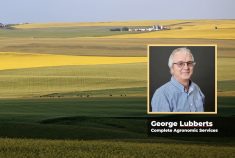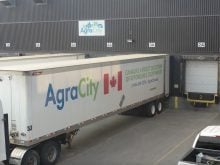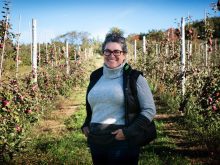New Keystone Agricultural Producers president watches as her four children continue the family’s work in the industry
On a dairy, beef, and grain farm near Portage La Prairie, Man., the four Verwey children have always known they are part of a hard-working, politically savvy agricultural entity.
Beginning with their grandfather, Gerrard, through his four sons, including their father, Ray, the next generation, Rachael, Brice, Randi and Lindsay have agriculture in their DNA.
“These men built a huge enterprise out of a small farm,” says Randi, who will follow in the footsteps of her mother and siblings by entering the Diploma of Agriculture program at University of Manitoba this fall.
“I want to be part of an industry that I love,” she says.
As the youngest in the family, she faces competition from her siblings and cousins, who share in the operation.
Perhaps the children’s greatest role model in how to navigate the politics and production of agriculture is their mother, Jill, the new president of Keystone Agriculture Producers. There is buzz about Jill being KAP’s first female president, but she just sees her role as ensuring diversity in the organization and not as a particular milestone.
“I feel that our board has had great female representation over the years,” Jill explains. “I was truly honoured to be elected as president. If that encourages other women producers to participate, that’s wonderful because, at the end of the day, having that diversity provides different points of view.”
Besides the KAP presidency, Jill was recently awarded the University of Manitoba’s Faculty of Agricultural and Food Sciences’ Certificate of Merit for her contributions to the industry.
Jill believes networking is the best way to advance agriculture. Invited to a reception during the summer premiers’ gathering in Winnipeg, she was able to advance her ideas about agriculture to several premiers she met. She believes it is important to view agriculture as an “all-encompassing industry” rather than as individual commodities.
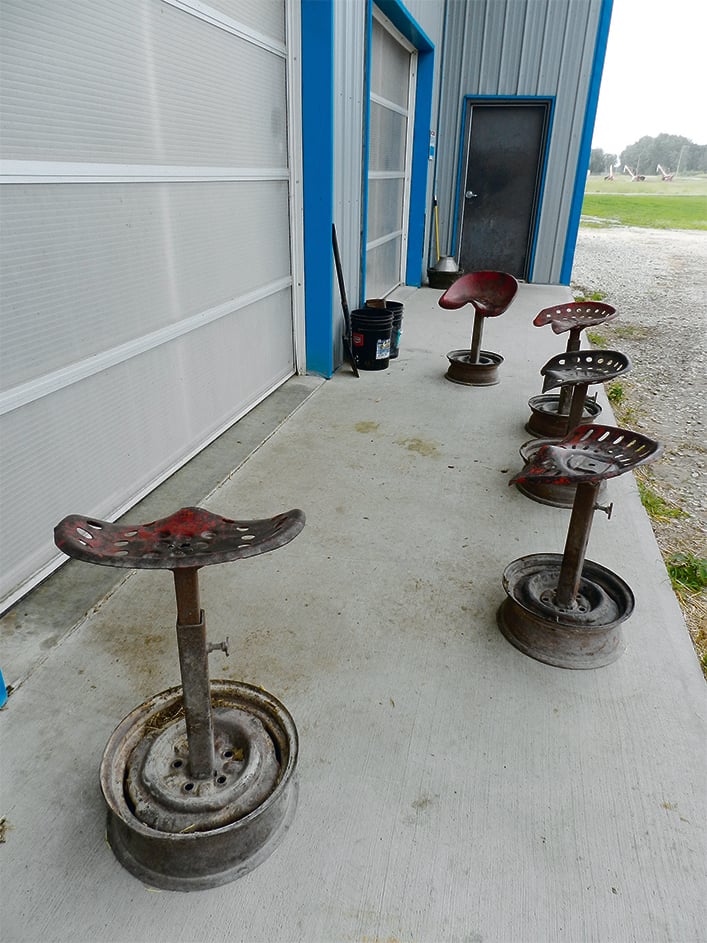
It’s no surprise to her children that Jill has taken on the KAP presidency after years serving on the organization’s committees, a stint with Dairy Farmers of Manitoba and a role with the Canadian Federation of Agriculture.
“Mom has totally blown me away with what she has accomplished,” says Lindsay, who proved she is her mother’s daughter with involvement in 4-H, Manitoba Junior Charolais and the University of Manitoba’s agriculture students’ organization.
“She encouraged me to be involved. Agriculture has opened up a lot of opportunities for me.”
If your name is Verwey, there is little doubt that agriculture will be your life’s work.
“I knew growing up that I would end up in agriculture someplace,” says Rachael, an agronomist with a local aerial application and crop inputs company.
She is part of a Young Leadership Program focusing on beef and a participant in KAP’s Manitoba Young Farmers.
“I value having a seat at the table.”
After she got her diploma, Jill worked for TD Bank until marrying Ray to become part of his family’s farm. She manages the books, nurtured the children and accompanied Ray to agricultural meetings.
Jill says Ray encouraged her to get politically involved. He is her sounding board for policy ideas and what initiatives are needed in the industry. Equipment got bigger, automation made feeding and milking quicker, and the next generation grew up to shoulder some of the workload, but the farm still requires much of Ray’s time.
Decision-making often happens while the family perches on a collection of old tractor seats mounted outside one of the barns that Jill laughingly refers to as “the boardroom.”
“I get valuable information from Ray because he listens to podcasts and reads information on the internet,” Jill admits. “He knows a lot about the issues already when I get back from meetings.”
Jill’s kitchen table is often the coffee shop for the large family enterprise, where she learns about issues and takes part in discussions on topics such as succession planning.
“I see so much value in having generations working together,” Rachael says. “They help you learn and we talk through decisions. Dad might make a comment like, ‘there’s a lot of grasshoppers’, which is a hint that we need to discuss a solution. These are all smart men who run a huge operation, so they must have some knowledge to share.”
Leadership is something the children have learned while watching their parents and other relatives run the farm.
“You need to be stubborn and have the courage to speak up,” Randi says of being part of the family enterprise.
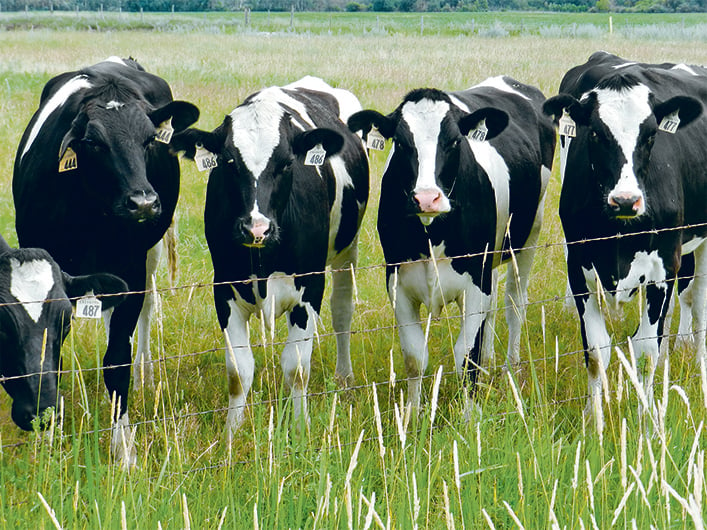
But she sees courage as necessary beyond the farm as well.
“You need to learn to talk to your neighbours and your ag suppliers. Agriculture is a big part of the Canadian economy and we should be part of the decision-making.”
While Brice is proud of his mother’s accomplishments, he is not sure he wants to be in the political limelight.
“I’m better in the barn milking cows,” he says.
Innovations, such as robotic milking, are important to the growth and success of the industry, but he understands it takes people like his mother to ensure the industry maintains its standing within Canada’s economy.
For the Verwey family, being involved in the business of agriculture is as important as producing beef, milk and crops.
“The education level of today’s farmers is getting elevated,” adds Jill. “Social media, educational opportunities and industry involvement shows those who work in agriculture are professionals operating multimillion-dollar operations.”
She wants to be at the table when decisions affecting her industry and ultimately, her family, are made. Jill hopes her children will continue to follow her lead.





